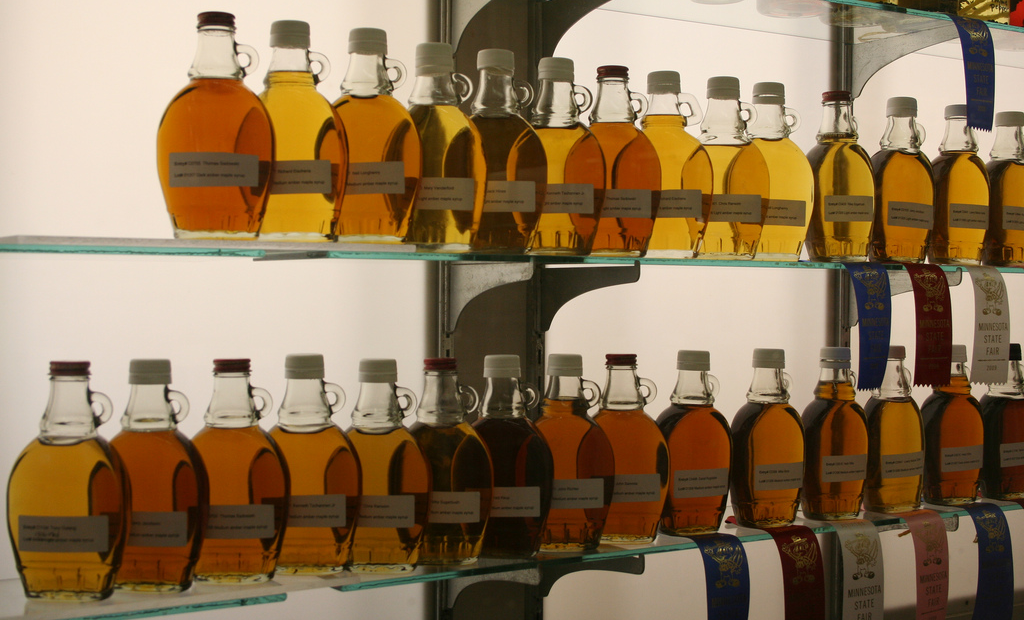USDA Introduces New Maple Syrup Grading System To Clear Up Consumer Confusion

(amanjo)
To make sure the country is in line with the international standards, the USDA announced that it’s doing away with the system of Grade A, U.S. Grade B for Processing labels and instead, add descriptive terms within Grade A and allow some darker syrups previously in Grade B to fall inside A’s purview as well, reports the Associated Press.
These are voluntary standards designed to match those used by other countries, in the hopes that consumers will have a better understanding of exactly what they’re buying, the USDA says. It’s in response to a 2010 petition from the International Maple Syrup Institute, which consists of producers in both the U.S. and Canada.
“The hope is that it will help producers, too, because it will make it easier for them to market their syrup … not only domestically but internationally,” said Charles Parrott, deputy administrator of the USDA’s Agricultural Marketing Service Fruit and Vegetable Program.
Some dark syrups with bold flavor had fallen under Grade B for reprocessing, and not intended for retail sale. There is more demand these days for dark syrup, however, for cooking and table use.
The new Grade A will now include: golden color and delicate taste, amber color and rich taste, dark color and robust taste, and very dark and strong taste.
A new “Processing Grade” will apply to syrup that isn’t intended to be sold in retail markets but can be used to make other products.
In the meantime, I would now like to eat all of the pancakes and waffles I can get my hands on.
USDA revises maple syrup grading with descriptive terms [Associated Press]
Want more consumer news? Visit our parent organization, Consumer Reports, for the latest on scams, recalls, and other consumer issues.

